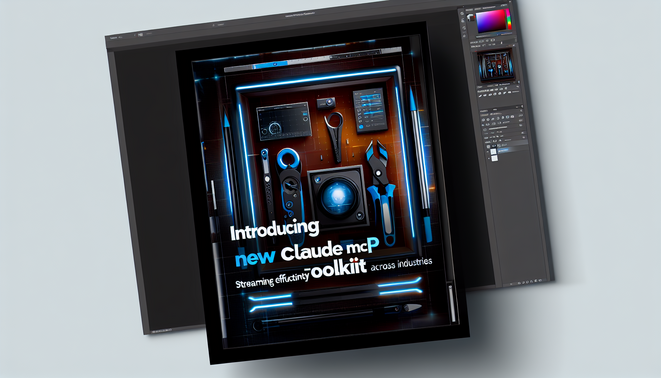Introduction to RCS Messaging
RCS (Rich Communication Services) messaging is an advanced messaging protocol designed to enhance traditional SMS (Short Message Service) with a variety of rich features that improve user experience in mobile communication. While SMS has been the backbone of mobile messaging for decades, RCS introduces capabilities like group chats, high-resolution photo and video sharing, read receipts, and typing indicators, similar to those found in popular messaging apps such as WhatsApp and Facebook Messenger.
One of the fundamental distinctions between RCS and SMS lies in their underlying technology. SMS is limited to plain text and simple media, allowing messages of just 160 characters, while RCS uses data to transmit messages, which can include rich multimedia and interactive features. This data transmission allows RCS to provide a more dynamic and engaging messaging experience. For instance, businesses can utilize RCS to create branded messages that appear more interactive, offering customers quick replies, carousels of images, and buttons for actions like making reservations or purchasing products.
The relevance of RCS in today’s digital communication landscape cannot be understated. According to a report from the GSMA, the organization representing mobile operators worldwide, RCS is expected to reach 2.8 billion users by 2025, making it a significant player in the mobile messaging ecosystem [Source: GSMA].
The Rise of RCS in Europe
The adoption of Rich Communication Services (RCS) is rising rapidly across Europe, transforming how businesses and consumers engage. Adoption rates vary, with the UK, Germany, and France leading the charge. Factors propelling RCS growth include enhanced consumer demand for more dynamic messaging experiences, increased smartphone penetration, and the need for businesses to adopt asynchronous communication for improved customer service.
Key players in the RCS ecosystem include telecom operators such as Vodafone and Orange, tech giants like Google, and various messaging providers that facilitate RCS integration for businesses. Google has significantly influenced RCS adoption by promoting its integration into Android messaging apps, making it accessible to millions of users in Europe. Investments in infrastructure and the development of RCS ecosystems by network providers are also vital, enabling features such as multimedia sharing, richer interactivity, and better brand engagement. Regional initiatives, including the European Commission’s focus on digital communications, further support RCS growth as part of a broader push toward enhancing digital services across member nations.
Benefits of RCS for Marketers
RCS messaging presents a transformative opportunity for marketers, enhancing customer engagement and improving communication effectiveness. The technology supports rich multimedia content such as images, videos, and carousels, vastly outpacing the conventional SMS format that restricts messages to text only. This richness allows brands to deliver visually engaging content that captivates audiences and retains their interest longer, fostering a stronger connection with customers.
RCS messages see significantly higher open rates compared to traditional SMS—approximately 98% compared to SMS’s 20%—due to its visually appealing format and presence in familiar messaging apps (e.g., Google Messages) [Source: Campaign Monitor].
Additionally, analytics tools integrated within RCS messaging platforms provide marketers with real-time insights into customer interactions, engagement metrics, and campaign performance, allowing continuous optimization of messaging strategies [Source: Brightcove]. This data-driven approach enhances customer targeting and personalization, ensuring that marketing efforts are timely and relevant. As brands increasingly shift towards digital engagement, implementing RCS messaging is likely to emerge as a mainstay in effective marketing strategies.
Real-World Success Stories
RCS messaging has driven notable successes for brands, enhancing customer engagement and marketing effectiveness. One prominent case is Domino’s Pizza, which integrated RCS messaging into its ordering process. Customers using RCS can receive real-time updates on their orders, leading to higher customer satisfaction and increased order accuracy [Source: Mobile Marketer].
Another impactful use case comes from Coca-Cola, which utilized RCS to launch an interactive advertising campaign. Through RCS, consumers engaged with promotional games and rewards, boosting brand engagement and significantly increasing interaction rates compared to SMS [Source: Adirondack Daily Enterprise].
Air France also adopted RCS for their customer service communications, providing passengers with real-time flight updates and personalized support. This led to reduced inquiries directed to call centers and improved customer feedback scores post-implementation [Source: Travel Daily News].
Challenges and Considerations
Implementing RCS comes with significant challenges that marketers must navigate. One primary hurdle is consumer privacy concerns. As RCS allows for more personalized messaging, users may feel uneasy about their data being utilized for targeted marketing. Research indicates that 86% of consumers express concerns about sharing personal data [Source: World Economic Forum].
Compliance with regulations such as GDPR and CCPA complicates RCS integration; marketers must ensure transparency and provide consumers the ability to opt-out, which can limit targeted campaign effectiveness. Additionally, technology compatibility presents a challenge; estimates suggest less than 50% of mobile devices globally support RCS [Source: GSMA]. This inconsistency can lead to fragmented user experiences and inefficiencies in marketing efforts.
Furthermore, implementing RCS might entail significant costs. Integrating RCS into existing marketing infrastructures can be resource-intensive, requiring new technologies and team training, posing a financial challenge, especially for smaller enterprises.
The Future of RCS in Marketing
The evolution of RCS in marketing presents opportunities for brands to enhance engagement and streamline communication strategies. As RCS gains traction, we can expect it to integrate advanced features like location sharing, payment capabilities, and rich media options, significantly improving personalization in marketing campaigns. Personalization is increasingly crucial; studies reveal that 80% of consumers prefer personalized experiences [Source: IBM].
As consumers become more accustomed to RCS, businesses will need to adopt this technology, shifting their focus from traditional SMS marketing to RCS, which has a 98% open rate [Source: Thoughtspot]. This shift should improve customer retention and loyalty program growth via instant, engaging communication.
RCS will likely play a role in omnichannel marketing strategies; it can integrate communication across platforms like WhatsApp or Facebook Messenger, enhancing customer journeys [Source: Forbes]. Furthermore, leveraging artificial intelligence and chatbots within RCS could automate interactions, providing immediate responses and improving satisfaction [Source: Business Insider].
Conclusion
Embracing RCS represents a transformative opportunity for marketers. It enables brands to deliver personalized, visually rich messages, significantly improving user experience over traditional SMS. With tools that facilitate rich media, suggested replies, and quick action buttons, businesses can achieve higher engagement rates and improved customer satisfaction.
Beyond multimedia capabilities, RCS also provides enhanced analytics that reveal customer behavior and preferences. This data-driven approach allows marketers to optimize strategies, maximizing ROI as global adoption grows. By leveraging RCS, marketers can meet and exceed consumer expectations, fostering loyalty and long-term relationships. As brands increasingly embrace RCS, they are positioning themselves for success in a competitive digital landscape. For further insights into digital marketing strategies, you can explore our other articles on customer engagement and digital communication tools.
Sources
- Adirondack Daily Enterprise – Coca-Cola Campaign Taps into RCS to Drive Engagement
- Brightcove – What is RCS and How Marketers Can Use It
- Business Insider – How Artificial Intelligence is Changing the Marketing Industry
- Campaign Monitor – How to Measure Email Open Rate
- Forbes – What is RCS (Rich Communication Services)?
- Forbes – Why RCS Messaging is the Future of Business Communications
- GSMA – RCS 2025
- GSMA – RCS Policies
- Mobile Marketer – How Domino’s Uses RCS Messaging to Create a Better Ordering Experience
- Travel Daily News – Air France Experimenting with RCS Messaging
- Thoughtspot – What is RCS and Why Business Should Care
- World Economic Forum – Consumer Privacy Digital Marketing Concerns






